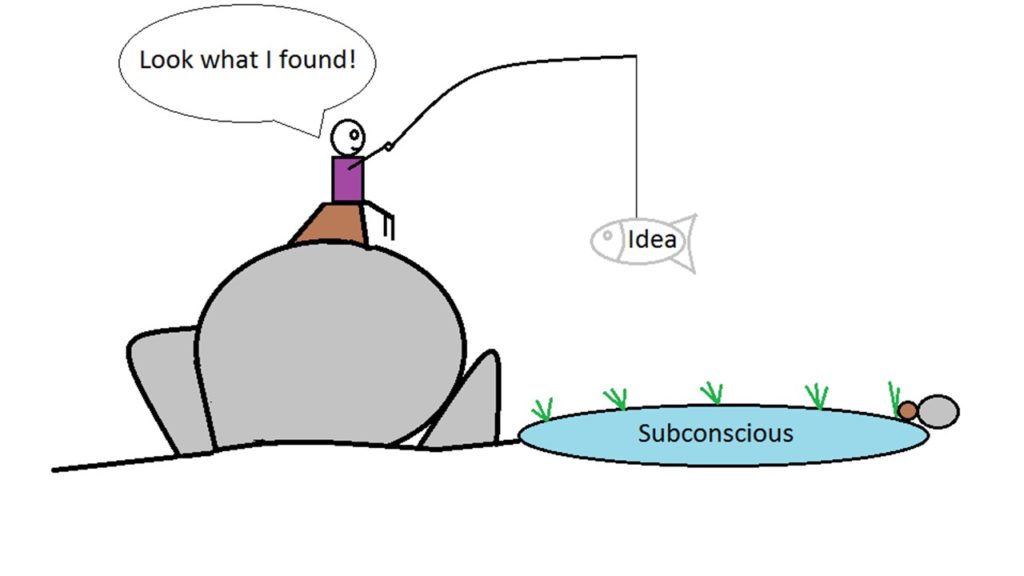心理学中的潜意识启动

Table of contents
心理学中的 "诱导 "是一种现象,当接触到某种刺激时,我们的思想和行为就会受到影响,从而对另一种后续刺激做出反应。 当这种现象发生在潜意识层面时,就叫做 "潜意识诱导"。
简单地说,当你接触到一条信息时,它有可能影响你对后一条信息的反应。 第一条信息会 "流入 "后一条信息,从而影响你的行为。
假设你正在和一个你很想交往的人约会,而他告诉你:"我想和一个吃素的、很关心动物的人在一起"。
片刻之后,你告诉他们你有多爱动物,讲述了你曾经如何救出一只被恶毒的主人捆绑并倒挂在树枝上的猫的故事。
这是一个有意识引导的例子。 第一条信息 "关爱动物 "引导你表现出关爱动物的行为。 你完全意识到自己在做什么,因为你想给潜在伴侣留下深刻印象。
当同样的过程在我们的意识之外发生时,它被称为潜意识引物。
你正在和朋友玩一个造词游戏。 你们都要想出一个以 "B "开头、以 "D "结尾的五个字母的单词。 你想出了 "面包",而你的朋友想出了 "胡子"。
当潜意识发生引子作用时,除非你们进行深刻的自我反省,否则你们俩根本不知道自己为什么会想到这些词。
如果我们稍微回溯一下,就会开始有所领悟。
See_also: 是什么让有些人如此多管闲事在和朋友出去玩前一个小时,你在姐姐家吃了 "面包 "和黄油茶。 就在玩游戏之前,你的朋友在电视上看到一个 "大胡子 "在谈论精神信仰。
即使我们对自己的行为进行了深刻反思,我们也可能无法察觉到无意识引诱的发生。 这是因为我们每天都会接触到成百上千条信息。
See_also: 我为什么对事情耿耿于怀?因此,找出我们当前行为背后的 "引子 "往往是一项困难的、几乎不可能完成的任务。
潜意识引导如何发挥作用
当我们接触到一个新的信息时,它会在我们的意识中停留一段时间,直到它消失在潜意识的更深层次。
当一个新的刺激需要我们从心理记忆储备中获取信息时,我们往往会获取仍然漂浮在我们意识中的信息,这要归功于它的近期性。
因此,我们获取的信息会影响我们对新刺激的反应。
就像你更容易钓到靠近水面的鱼,因为你可以轻松评估它们的动向和位置一样,你的大脑也更容易获取靠近水面的信息,而不是深埋在潜意识中的信息。

当你给一个人灌输某种思想时,它通常不会持续太久,因为不仅这种灌输最终会消失在潜意识中,而且我们还会不断受到新信息的轰炸,这些信息很可能会颠覆或克服原来的灌输,并创造出新的、更强大和更容易获得的灌输。
引导的例子
诱导 "似乎是未来科幻心理惊悚片中的一个概念,在这部影片中,一些邪恶的精神控制者控制着他的敌人,让他们做出各种怪异、令人尴尬的事情。 然而,"诱导 "在我们的日常生活中非常常见。
善于自我观察的作家经常会注意到,他们会在写作中融入一些最近从某处拾起并在脑海中浮现的想法。 这些想法可能是几天前读到的一个例子,可能是前一天晚上接触到的一个新词,也可能是最近从朋友那里听到的一句俏皮话,等等。
同样,艺术家、诗人、音乐家和各种有创造力的人也容易受到这种引物的影响。
当你购买或打算购买一辆新车时,由于 "引子 "的作用,你很可能会在路上更频繁地看到那辆车。 在这里,你购买或打算购买的那辆车起到了 "引子 "的作用,引导你注意类似的汽车。
当你吃了一块蛋糕,你很可能会再吃一块,因为第一块蛋糕会让你产生吃下一块蛋糕的冲动,这又会让你产生吃下一块蛋糕的冲动,这又会让你产生吃下一块蛋糕的冲动。 我们都经历过这种内疚的循环,而引物在这种行为中扮演着重要的角色。

